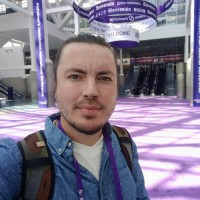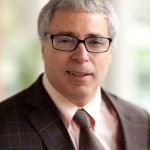Aging and the proteome, or How to die young at a very old age
Age is the biggest risk factor for a number of chronic diseases. While genetic changes across lifespan are limited, a recent study by Benoit Lehallier and Nir Barzilai demonstrated that the proteome undergoes measurable waves of change that reflect distinct biological pathways associated with age-linked disease. The study identified age-related patterns in ~3,000 proteins across >4,000 healthy individuals between the ages of 20 and 95 using the SomaScan® Platform.
In this webinar, Lehallier and Barzilai discuss the findings of their Nature Medicine paper “Undulating changes in human plasma proteome profiles across the lifespan” and present new data exploring how probing the proteome can help us to separate chronological age from biological age.
Topics covered include:
- How circulating proteins can be used to predict age and relative health
- How the speed and timing of biological aging has changed over time
- Proteomic signatures of frailty
- Sex-related differences in proteome stability
- The proteome in descendants of centenarians
- Targeting aging based on protein signatures

Benoit Lehallier, PhD
Instructor in Neurology, Stanford University
Dr. Lehallier is a researcher and instructor in the department of Neurology and Neurosciences at Stanford University. Before joining Stanford, Benoit got his PhD in neuroscience from the French National Institute of Agriculture where he studied processing of odors in deep brain regions using MRI. As a postdoc at Roche, he collaborated with researchers at Stanford to identify novel fluid biomarkers of Alzheimer’s Disease. A biostatician by training, Benoit is now using multi-omics approaches to explore aging and aging-related disease in collaboration with Tony Wyss-Coray’s lab at Stanford.

Nir Barzilai, MD
Director, Institute for Aging Research, Albert Einstein College of Medicine
Dr. Barzilai is a chaired Professor of Medicine and Genetics and Director of the biggest center in the world to study the biology of aging and the principal investigator of the Einstein Nathan Shock Center and the Glenn Center. He is the recipient of an NIH Merit Award aiming to extend the healthy life span in rodents by biological interventions. He also studies families of centenarians that have provided genetic/biological insights on the protection against aging. Several drugs are developed based, in part, on these paradigm-changing studies. He is the author of over 270 peer-reviewed papers and a recipient of numerous prestigious awards, including the recipient of the 2010 Irving S. Wright Award of Distinction in Aging Research and is the 2018 recipient of the IPSEN Longevity award. He is leading the TAME (Targeting/Taming Aging with Metformin) multi central study to prove that concept that multi morbidities of aging can be delayed in humans and change the FDA indications to allow for next generation interventions. He is a founder of CohBar Inc. (now public company) and Medical Advisor for Life Biosciences. He is on the board of AFAR and a founding member of the Academy for Lifespan and Health span. He co-founded CohBar He has been featured in major papers, TV program and documentaries (TEDx and TEDMED) and has been consulting or presented the promise for targeting aging at The Singapore Prime Minister Office, several International Banks, The Vatican, Pepsico, Milkin Institute, The Economist and Wired Magazine.
More webinars
WebinarProteomics in Clinical Trials: Lessons from Semaglutide Treatment in Individuals with Obesity
Advancements in proteomic profiling have opened new avenues for understanding the complex mechanisms underlying obesity and its comorbidities. By measuring thousands of proteins at once, researchers gain a comprehensive view of an individual’s metabolic health, revealing subclinical processes and pinpointing potential therapeutic targets.
WebinarPathways to Digital Health: AI and Omics in Rheumatoid Arthritis
Explore how groundbreaking proteomic research is transforming our understanding of rheumatoid arthritis (RA). In this on-demand webinar, Allan Stensballe, PhD, shares new insights into the molecular landscape of RA-affected synovial tissue, revealing how autoantibodies and protein signatures may hold the key to more precise personalized therapies.
WebinarUsing Antibody Profiling to Identify Novel Diagnostic Biomarkers
Current cancer screening methods often lead to false positives, false negatives and invasive biopsies that lack prognostic insights. Emerging research suggests that cancer-specific IgM and IgG antibodies – produced by B cells upon recognizing malignant cells – could serve as stable, easily measurable blood biomarkers for detecting and monitoring high-incidence cancers like melanoma and breast, prostate, bowel, lung and pancreatic cancer. This approach has the potential to improve early diagnosis, reduce uncertainty and enhance treatment planning.





